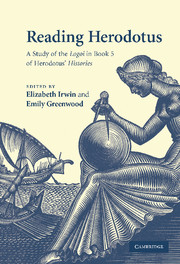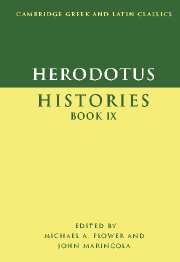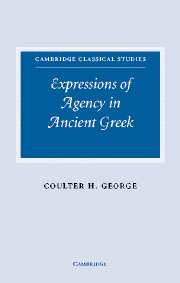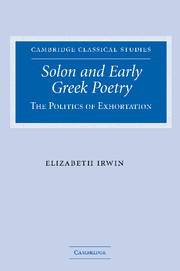Reading Herodotus
Reading Herodotus is a 2007 text which represented a departure in Herodotean scholarship: it was the first multi-authored collection of scholarly essays to focus on a single book of Herodotus' Histories. Each chapter studies a separate logos in Book 5 and pursues two closely related lines of inquiry: first, to propose an individual thesis about the political, historical, and cultural significance of the subjects that Herodotus treats in Book 5, and second, to analyze the connections and continuities between its logos and the overarching structure of Herodotus' narrative. This collection of twelve essays by internationally renowned scholars represents an important contribution to scholarship on Herodotus and will serve as an essential research tool for all those interested in Book 5 of the Histories, the interpretation of Herodotean narrative, and the historiography of the Ionian Revolt.
- Was the first scholarly volume devoted to Book 5 of the Histories
- Contributors include many of the leading international scholars working on Herodotus and Greek historiography
- Offers insights into the history and historiography of the Ionian Revolt
Product details
October 2007Adobe eBook Reader
9780511332159
0 pages
0kg
This ISBN is for an eBook version which is distributed on our behalf by a third party.
Table of Contents
- Introduction Elizabeth Irwin and Emily Greenwood
- 1. 'What's in a name?' and exploring the comparable: onomastics, ethnography and kratos in Thrace (5.1–2 and 3–10) Elizabeth Irwin
- 2. The Paeonians:
- 5.11–17 Robin Osborne
- 3. Narrating ambiguity: murder and Macedonian alliances:
- 5.17–22 David Fearn
- 4. Bridging the narrative:
- 5.23–7 Emily Greenwood
- 5. The trouble with the Ionians: Herodotus and the beginning of the Ionian Revolt (5.28–38.1) Rosaria Munson
- 6. The Dorieus episode and the Ionian Revolt:
- 5.42–8 Simon Hornblower
- 7. Aristagoras:
- 5.49–55.97 Christopher Pelling
- 8. Structure and significance:
- 5.55–69 Vivienne Gray
- 9. Athens and Aegina:
- 5.82–9 Johannes Haubold
- 10. 'Saving' Greece from the 'ignominy' of tyranny? The 'famous' and 'wonderful' speech of Socles John Moles
- 11. Cyprus and Onesilus: an interlude of freedom (5.104, 108–16) Anastasia Serghidou
- 12. The Fourth Dorian Invasion and the Ionian Revolt (5.76–126) John Henderson.





